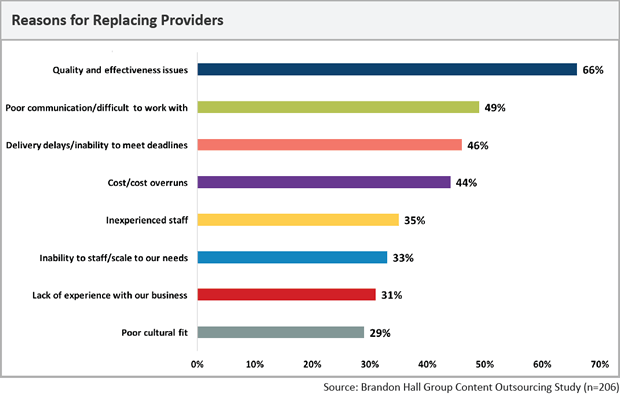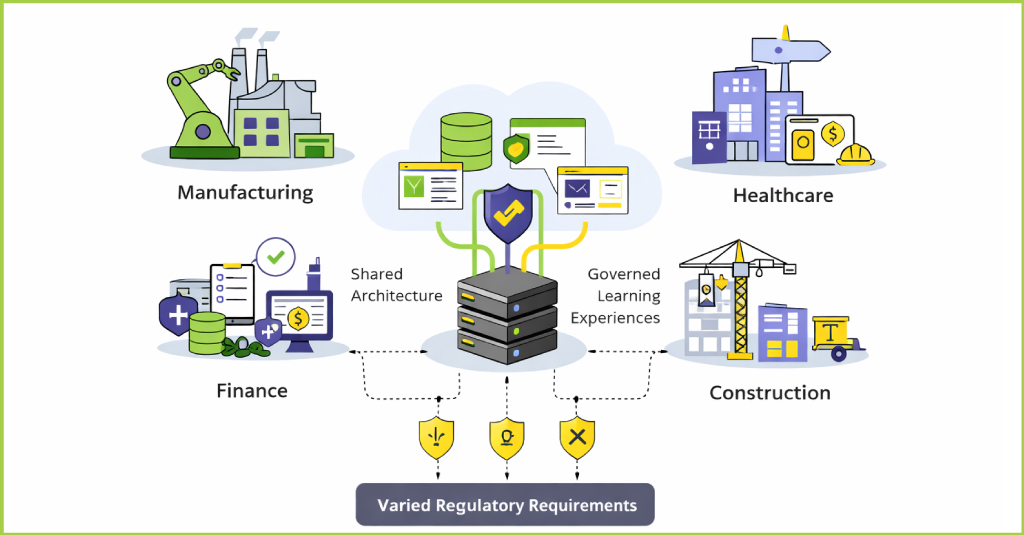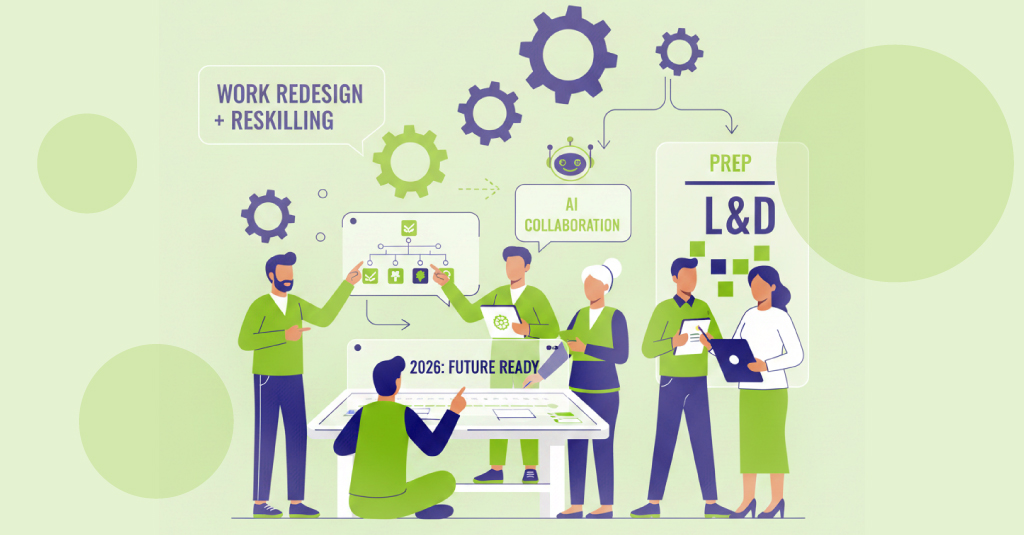The latest Brandon Hall Report is a revelation for all who are interested in the eLearning outsourcing landscape. It breaks some myths that had so far clouded the path towards outsourcing, one of the popular one was that cost drives eLearning outsourcing. On the contrary the study found that quality, innovation, trust etc. play the prime roles when it comes to eLearning outsourcing. To add to it, another surprising fact that has come to the fore is that, “62% of companies have replaced outsourcing providers over the past three years.”
Why such a high proportion of replacements?
The study found that the top reasons for replacing eLearning vendors is Quality and effectiveness related, communication issues, delayed deliveries and other less significant reasons like inexperienced staff, cost, lack of scalability etc.

As the Brandon Hall Report points out, for any organisation to sustain and deliver satisfactory learning content, the key is to look for an eLearning partner and not just a vendor. In our view the top three reasons when you think about them little deeper, are actually linked to the ‘people‘ and the ‘processes‘ at the provider’s end. Let’s explore the link a bit more.
Reason #1: Quality and effectiveness issues
Quality is quite subjective and each person/organisation may have their unique definition of quality. Hence ideally while selecting a provider you should evaluate them based on quality of output (as you define it), review the eLearning development processes followed, understand the quality assurance processes they have.
Sometimes quality can be good initially but drops significantly when either volume of work grows or new kinds of solutions are needed. To avoid this you need to evaluate a vendor’s scalability and also depth of skills in the team. You don’t want to work with a provider who has just 1-2 key people and everyone else on the team is a beginner of sorts.
In some cases a provider might completely skip the quality assurance (or testing) process when timelines are crunched and multiple rounds of feedbacks are happening. Hence it is important to review the process more critically and understand if the critical QA process will be ever skipped and under which conditions.
Reason #2: Poor Communication/difficulty to work with
The basic communication skills (understanding, speaking, & writing skills) of the project team (and not the sales person) of the provider needs to be checked while selecting a provider. It is usually the Project manager(s) and Instructional Designer(s) who mostly interact with you so you should speak to a few of them in initial stages.
Beyond the basic communication skills are the protocols or principles with which the provider actually manages projects. Proactive, periodic, & purposeful communication from the project manager is a great help in progressing the project at your end. Use of an online project management system will be additionally helpful in finding all project related communication in one place chronologicallyand makes it independent of people – even at your end.
Another area where communication could be challenging in eLearning outsourcing is giving feedback on deliveries. Word docs or PPTs could be lengthy and time consuming. We find doing a WebEx (or similar) meeting is best as you can share screen, mark areas where you need changes, and the whole session can be recorded to refer back to.
Reason #3: Delivery delays/inability to meet deadlines
We’ve heard our clients say ‘I don’t fret project delays as much as delayed information about project delays‘. This may resonate with you too as most businesses are dynamic, products/content changes while the project is on, SMEs delay things at client end, some other thing goes haywire at provider end etc. If you get information in advance about delays you are able to make adjustments at your end and minimise the damage arising out of actual delays. So a part of this issue can be diluted by proper communication.
In our experience, the delays are often caused by (in the descending order of importance)-poor project management, taking on impossible deadlines, not adhering to feedback schedules from client side, or even sudden emergencies in the project team.
To be confident of your provider’s project management skills it is best to review their processes and also to speak with a few of their existing clients (especially the ones who have worked with them for more that a couple of years and hence possibly seen more than a few projects). Also it may help to start small and grow the relationship gradually while both your and partner teams get to know each other and their working styles better.
As you can see the 3 top reasons are actually linked to the people and processes. We had written in past on How to select A Vendor which could be a good help in choosing a great eLearning partner.
Before I end, it is worth mentioning that the Brandon Hall Report points out that the blame doesn’t lie solely at the feet of the providers. Many times organisations aren’t sure what they need, or their requirements change over time. There are challenges, but a relationship built on trust and quality output can typically work through these.



















